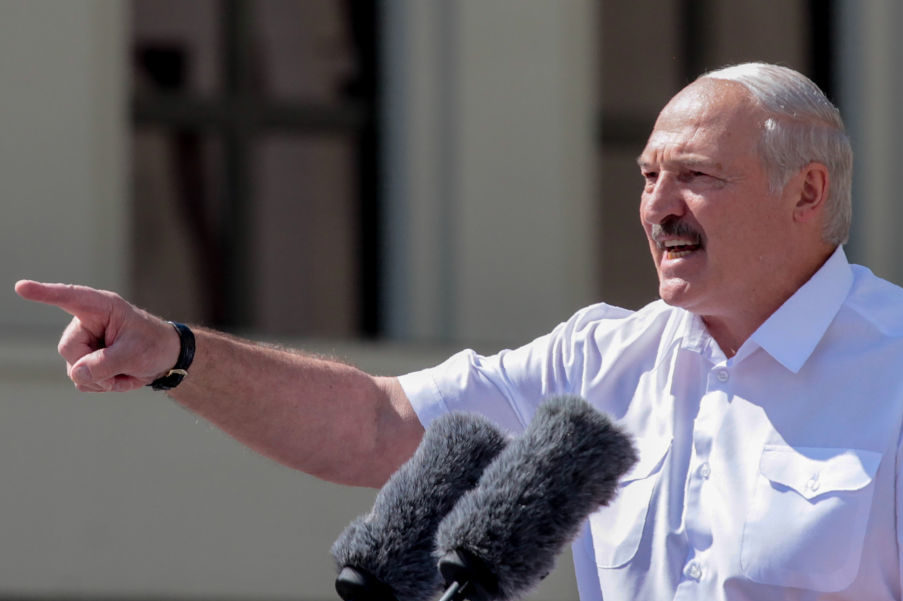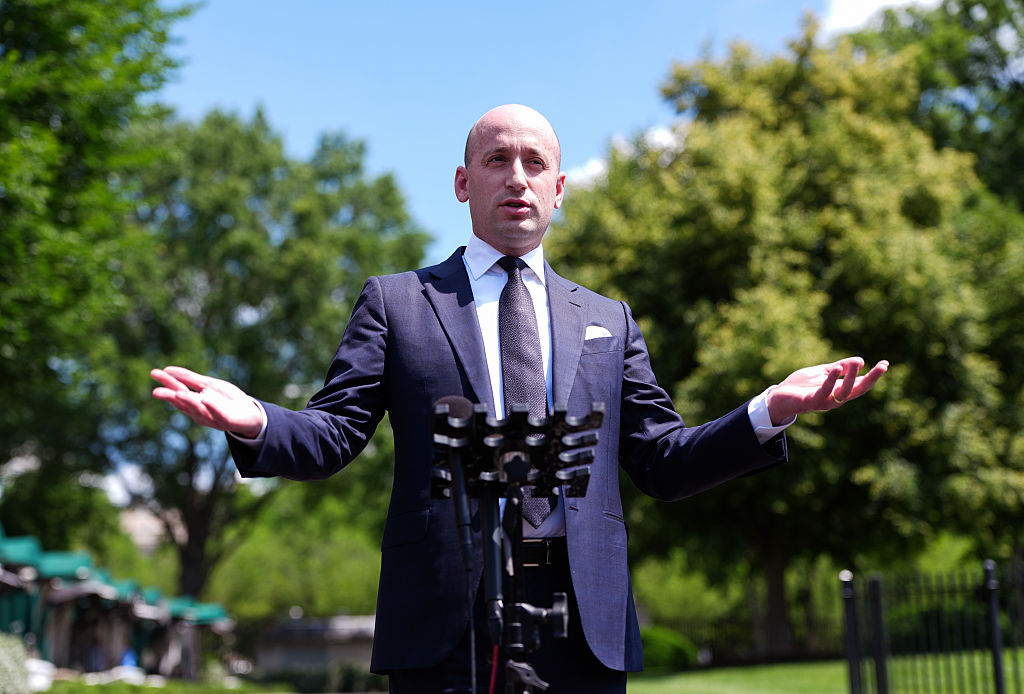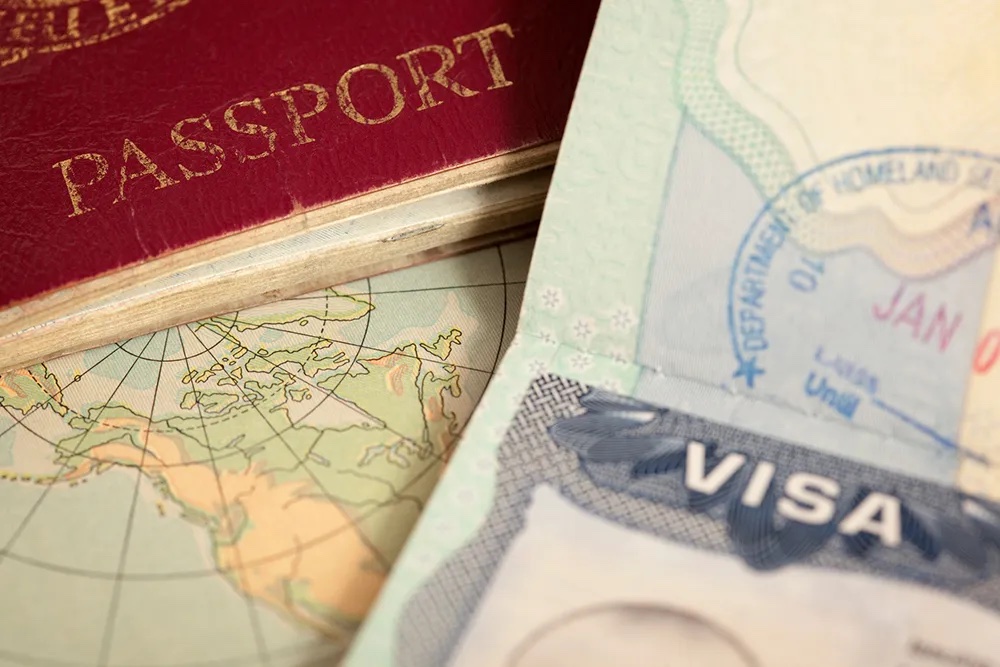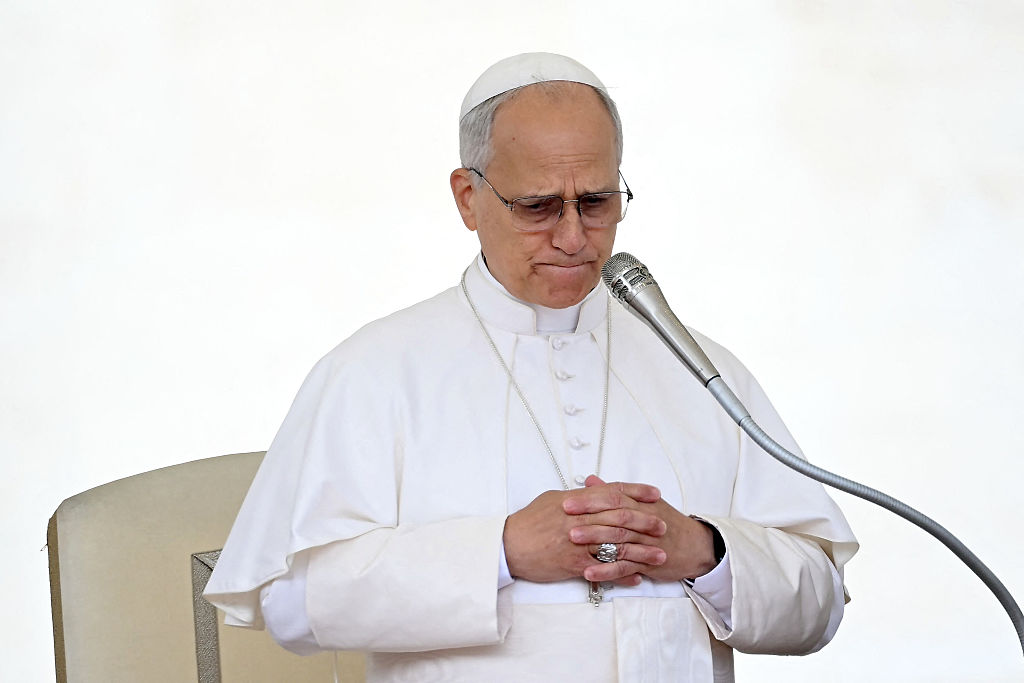When you have already forced a plane down with spurious claims of a bomb threat, just to arrest one dissident journalist, where do you go from there? For the Belarusian dictator Alexander Lukashenko, a man looking to punish the European Union after it imposed sanctions on Belarus, it seems that exploiting would-be migrants and asylum seekers is the way forward.
Last week, the dictator threatened to send masses of migrants to the EU, in retaliation for the bloc’s sanctions against Belarus. ‘We will not stop anyone,’ Lukashenko said, saying migrants would be on their way to a ‘warm and comfortable Europe’ soon.
His goal in particular appeared to be to hit back at neighboring Lithuania, which has been at the forefront of European efforts to punish Belarus for its heavy-handed repression of a public uprising against the regime. On Monday, the Lithuanian foreign minister, Gabrielius Landsbergis, formally accredited the Belarusian opposition office in Vilnius. In doing so, it moved a step closer to officially recognizing the opposition leader Svetlana Tikhanovskaya as Belarus’s legitimate leader in exile.
Belarus has precious few conventional means to retaliate. The western diplomatic community in Minsk is already shrunken and constrained. Foreign media are largely excluded. Economic sanctions already block much trade, and the regime needs outside markets more than the other way round.
As a result, Lukashenko, as wily as he is ruthless, has made good on his threats to swamp Lithuania with migrants. Not Belarusians — many are desperate to leave the country, but prevented from doing so by the government — but Iraqis and others.
According to Vilnius, Minsk has moved from permission to provocation. It is now directly helping migrants get into the EU and helping them cross the border into Lithuania. Most of the migrants are reportedly coming from Turkey, and others have been offered cheap flights to Minsk by ‘travel agencies’ in Baghdad and elsewhere, for that very purpose. They appear then to have been bussed to the Lithuanian border by the regime and helped to surreptitiously cross into the EU. Indeed, the Lithuanian authorities have noted that spikes in the number of Iraqis crossing the border has tended to coincide with the schedule of flights from Baghdad to Minsk.
According to the Lithuanian government’s own figures, 636 migrants crossed the border in the first half of 2021. Now 779 have made the journey in the first week in July, alone.
The Lithuanian government is now shifting more police to the border and talking about deploying troops and building a wall. The border is some 679 km (422 miles) long, though, and VSAT, the Lithuanian State Border Service is relatively small and more used to handling occasional tobacco smugglers than mass migration. Border forces do not usually have to contend either with another state helping people evade checks. A state of emergency has been declared, and officers from Frontex, the EU border management service are being sent to help — but so far they have dispatched only 30 representatives.
Lukashenko is hardly the first strongman to weaponize migrants. Libya’s erstwhile dictator Muammar Gaddafi often threatened to send migrants across the Mediterranean to extort regular payments from the EU, while the massive influx of some four million Syrian refugees into Turkey has given Recep Tayyip Erdogan a lever to influence policy in Europe, which he has regularly used or threatened.
But in both those cases migrants and refugees were essentially being used as bargaining chips. What Lukashenko wants — an end to sanctions and a blind eye turned to his brutal regime — is not something the EU is willing to able to give him. If anything, he seems to have adopted a strategy of provoking the West on the assumption that the more they demonize him, the more Vladimir Putin — a man who patently dislikes him and who would happily replace him with someone more pliable — is forced, willy-nilly, to support him. This kind of cynical, scorched-earth policy is difficult to deter or defend against. Considering the free movement permitted within the Schengen area, it could also quickly move from being a Lithuanian into a European problem.
It is hard to see this ending well for Lukashenko. Although his brutal methods have quelled much of the overt pressure against him at home, his regime has no legitimacy anymore. He has become a pariah in the West, and he is playing a dangerous game against Russia. At some point Moscow may decide that if they are paying to prop up Lukashenko’s regime, they might as well directly control it as well.
If anything, there seems to be a willful, spitefully apocalyptic dimension to Lukashenko’s latest migrant policy — and it may well be pre-emptive vengeance for his inevitable fall.
This article was originally published on The Spectator’s UK website.
























